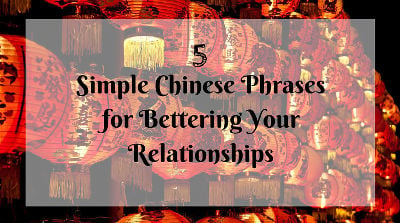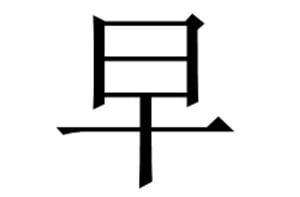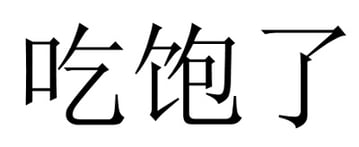 You’re coming to China to visit your suppliers. Maybe you’ve taken the time to learn a couple of phrases like “hello” and “thank you” in Mandarin, which you hope will come in handy during your trip.
You’re coming to China to visit your suppliers. Maybe you’ve taken the time to learn a couple of phrases like “hello” and “thank you” in Mandarin, which you hope will come in handy during your trip.
Let’s take the next step and learn some more simple Chinese phrases to show you‘re not saying the words to be funny, but that you have a genuine interest in speaking their language. A small effort made in learning a bit of your suppliers’ native language can go a long way to building rapport and helping you form lasting relationships.
You may have read a phrasebook, but most of the terms they contain are academic Chinese and not really the way people normally speak day-to-day. Below are 5 simple phrases that most people actually use in everyday life.
1. Zǎo = “Good Morning”
You are walking out of the hotel in the morning and greet the doorman, or see your Chinese colleagues in the lobby. You can say Zǎo – The literal translation is just “morning”, just like we say it back home.
You can say Zǎo – The literal translation is just “morning”, just like we say it back home.
2. Hǎo Chī = “Taste’s good”
You’re bound to be at a meal with your supplier at some point during your trip. They will order more food than any one table of people could possibly eat and will wait with anticipation while you take your first bite. Say “Hǎo Chī” to let them know you like the food. Your hosts will be delighted.
"Say “Hǎo Chī” to let your Chinese dinner host know you like the food."
3. Hǎo = “Good” / Bù Hǎo = “No good”
At the factory, your supplier presents some samples for you to review. Maybe there are some aspects about the sample you like. And maybe the samples show some issues which would be considered defects and unacceptable for production.
No doubt there is a junior worker who speaks some basic English present during your visit that is feverishly taking notes while his senior counterpart examines the points you are looking at. Refer to the points you like as “Hǎo” and the points you don’t like as “Bù Hǎo”. Nothing will be lost in terms of what you want.
4. Kě Yǐ = “can”
This is a word which can be used in a lot of different situations. But basically if something is OK for you, or you agree, use the words “Kě Yǐ” to confirm your acceptance. For example, you’re at the restaurant and they ask if you can eat beef. You can reply with “Kě Yǐ” to let them know you’re okay with eating beef.
5. Chī Bǎo Le = “I’m full”
No doubt this will happen - you’re at the dinner table and someone continues putting food in your bowl – it doesn't stop! Say the magical 3 words “Chī Bǎo Le” and your hosts will know that you've reached your limit.
T here is a disclaimer on this phrase though, you should have had a good attempt at eating something from every dish at the table before trying to use this. Otherwise, you’re likely to face some opposition from your hosts, who will likely try to get you to eat more. Unless you have a food allergy, leave your diet plans in your home country. You should try as many dishes as you can during your visit and indulge your hosts.
here is a disclaimer on this phrase though, you should have had a good attempt at eating something from every dish at the table before trying to use this. Otherwise, you’re likely to face some opposition from your hosts, who will likely try to get you to eat more. Unless you have a food allergy, leave your diet plans in your home country. You should try as many dishes as you can during your visit and indulge your hosts.
Conclusion
With these 5 phrases, you've added some very simple but effective terms to your repertoire. Your hosts may still giggle, but they will also be undoubtedly impressed.
What are some other Chinese phrases you have found useful when visiting your suppliers in China? Share them in the comments below!






